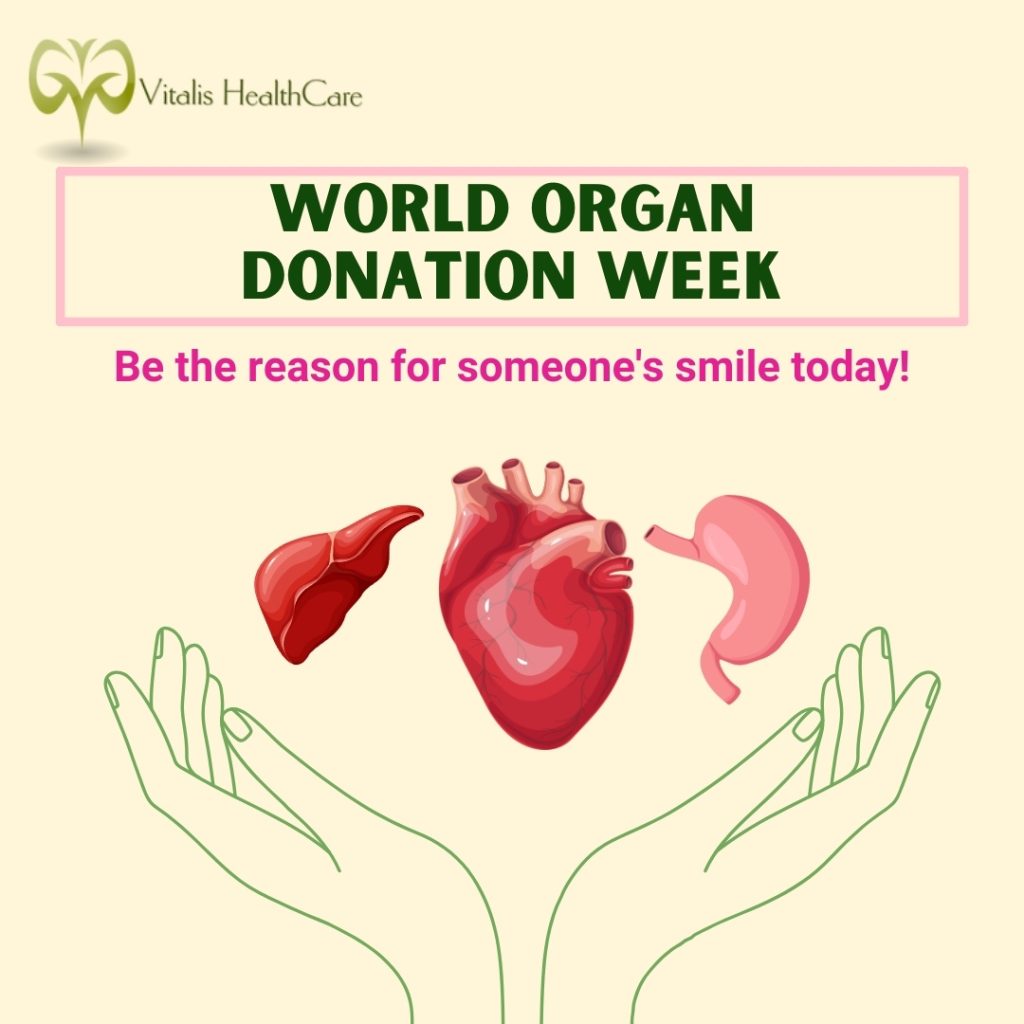In 2024, Organ Donation Week will take place from September 23–29. We would like to us this blog to bring greater awareness to organ donation by debunking myths and sharing facts.
Organ donation and transplant allows a living or deceased donor to give life to another. Healthy organs are removed from someone who can survive without it, and transferred to someone else who needs said organ for their survival. Organ donation saves lives, but due to scarcity, not everyone who needs an organ transplant gets one in time. Over 100,000 people in the United States are waiting for a life saving organ transplant. But only 40,000 transplants take place each year.
The organ donation week seeks to create awareness about the importance of organ donation in saving lives, encouraging conversations about organ donation amongst families. and educating people about the Organ Donor Register(ODR).
What is an Organ Donor Register?
An organ donor register is an anonymous record of people’s organ donation decisions. Choosing to sign up as an organ donor could potentially save the lives of over 8 people. Anyone can sign up to be an organ donor, choose what organ they want to donate and when they want to donate it(while alive or upon passing).
In today’s article, we will discuss the myths surrounding organ donation and share a few actual facts on the topic. Like almost anything in the world, people hold a lot of myths about organ donation but let’s take a look at some of these myths and juxtapose them with some facts;
- Myth: I’m too old to be an organ donor.
Fact: With organ donation, age is not a barrier. Even people over the age of 80 have become organ donors. It’s up to the medical team to assess and decide whether an individual is fit for organ donation.
- Myth: Me or my family will be charged if I am an organ donor.
Fact: There is no cost attached to the donor or donor’s family for an organ or tissue donation. All costs related to the donation are paid by the Organ Procurement Organization(OPO).
- Myth: When I sign up to become a donor, I cannot choose what organ or tissue I want to donate.
Fact: You can always choose or change what organs or tissues you’d like to donate, including when you’d like to donate (while you’re alive or upon passing).
- Myth: I cannot make any organ or tissue donation while I’m alive.
Fact: Some organs and tissues can be donated while still alive, such as; one kidney, a portion of the liver, the uterus, gestational tissue (leftover tissue after the birth of a newborn).
- Myth: Organ donors cannot have an open casket funeral.
Fact: Funeral arrangements including an open casket will not be affected by the decision to donate. Additionally, donation does not delay funeral services.
Organ donation is a decision you should make on your own, without external pressure and Influence. You should also always make your own research to educate yourself on organ donation as that will help you make an informed decision.
How does the organ donation process work?
The process for any organ donation begins with consent and ends with a surgical organ transplant. The steps are typical as follows;
- Identifying an eligible donor: An individual is eligible when he or she is cleared by a medical professional after proper medical assessment. In the case of a deceased donor, the organs are removed and preserved through mechanical ventilation.
- Obtaining consent: Consent must be taken and gotten from the donor before the transplant can be carried out. In the case of deceased donors, the database of registered donors is checked to confirm if the donor is registered. If they are, the family is informed of their consent to donate. And if they are not, the family will be consulted about the opportunity of donation. In which their family can choose to donate on their behalf.
- Matching donors to recipients: The donor organs and tissues are matched with people who need them. Typically, it is a computerized process whereby the donor’s blood type, body size and available organs and or tissues are entered into the computer system. The database will find the closest possible match from the database of recipients.
- Recovering the organs: A surgical team then recovers the organs and tissues from the donor in a respectful manner. According to the federal law, in the case of deceased donors, a different medical team from the one who cared for the donor at the end of their life will carry out the procedure.
- Organ transplantation: The last step in organ donation is the transplantation. The organ recipient will be prepared for surgery and waiting at the hospital for the donor organs. The surgery will begin as soon as possible, while the organ is still viable. Some organs are only viable for 6 hours after they are removed.
You can register to become a donor by signing up on your state registry site. To find your state, visit the federal site at organdonor.gov/sign-up.
At Vitalis Home Healthcare, the safety and well-being of our patients is a top priority. Our team of registered nurses and experienced caregivers guarantee to contribute to the achievement of our mission, to improve the quality of life for our clients in the comfort of their homes.
To learn more about our services and how best we can help you, kindly book a free consultation to get in touch with our client care coordinator.
Phone Number: 240.716.6874
Email: info@vitalishealthcare.com
Location: We provide our services in every county in the State of Maryland, United States of America.
Office Address: 8757 Georgia Avenue Suite 440 Silver Spring, MD 20910
Submit your review | |


